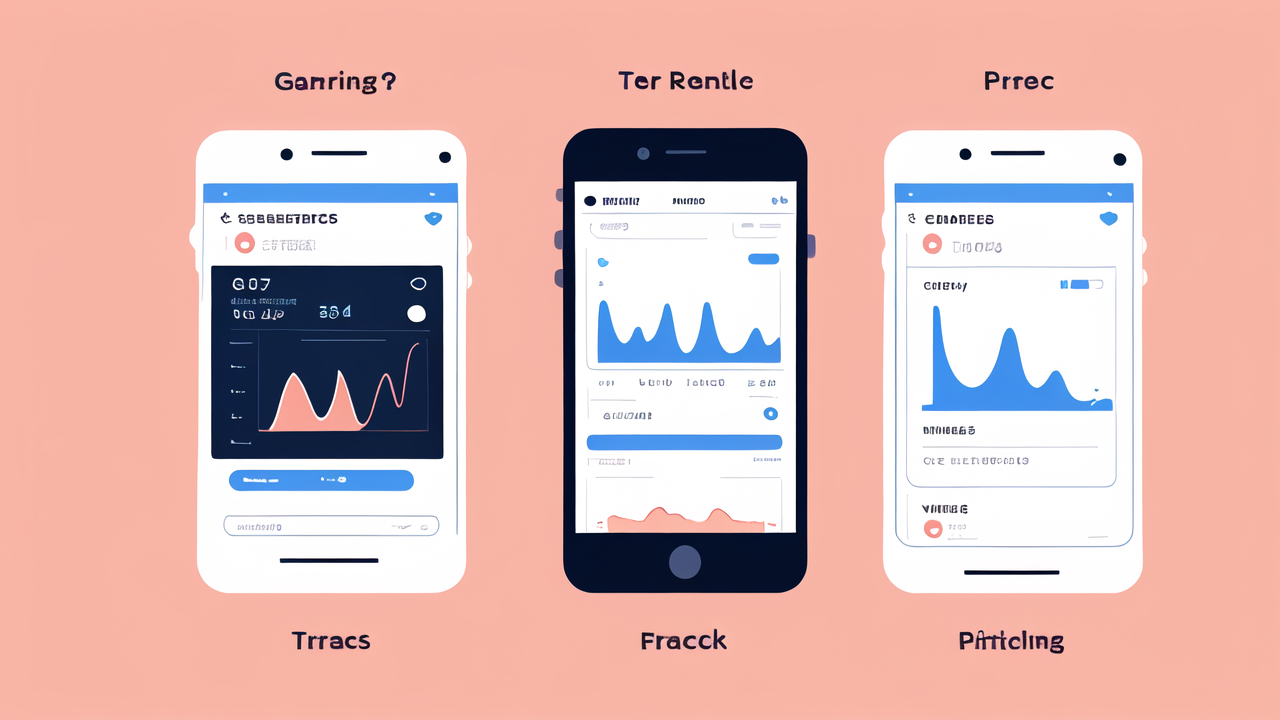Understanding Fitness Tracking: A Primer for Health Enthusiasts
The Rise of Fitness Tracking in the United States
Fitness tracking has become a huge trend in the US. More people are using these devices to monitor their health. The market has grown rapidly in recent years. Many Americans now wear fitness trackers daily.

These devices help users track steps, calories, and sleep. They've become more advanced over time. Now, they can monitor heart rate and even stress levels. The popularity of fitness trackers shows no signs of slowing down.
Companies keep improving their products. This makes fitness tracking more appealing to a wider audience. From athletes to casual users, there's a tracker for everyone.
Key Metrics to Track When it Comes to Health
When using a fitness tracker, several key metrics are important to monitor:
- Steps taken
- Calories burned
- Heart rate
- Sleep duration and quality
- Active minutes
- Distance traveled
- Stress levels
These metrics give a good overview of your health. Steps and distance show how active you are. Calories burned help with weight management. Heart rate indicates cardiovascular health.
Sleep tracking is crucial for overall well-being. Active minutes show how much you exercise. Stress levels can impact your health in many ways. By tracking these metrics, you can make informed decisions about your lifestyle.
The Benefits of Using a Fitness Tracker
Using a fitness tracker offers many benefits:
- Increased awareness of physical activity
- Motivation to reach fitness goals
- Better sleep habits
- Improved heart health monitoring
- Stress management
- Weight loss support
- Community and social features
Fitness trackers make you more aware of your daily habits. They can motivate you to be more active. Many people find they move more when using a tracker.
These devices can help improve sleep by showing sleep patterns. They also aid in managing stress through breathing exercises. For weight loss, trackers can help you balance calories in and out.
Many trackers offer community features. This can provide extra motivation and support.
Comparing Top Fitness Trackers: Features and Applications
Comparing Heart Rate Monitors: Which One Wins?
Heart rate monitoring is a key feature in fitness trackers. Different brands use various technologies. Some are more accurate than others.

Chest strap monitors are often the most accurate. They measure electrical signals from the heart. Wrist-based monitors use optical sensors. These are convenient but can be less precise.
Top brands like Garmin, Fitbit, and Apple offer good heart rate tracking. Garmin's devices are known for accuracy in intense workouts. Fitbit provides continuous tracking throughout the day.
Apple Watch uses advanced sensors for detailed heart health data. It can even detect irregular rhythms. When choosing a tracker, consider how you'll use the heart rate feature.
For casual users, wrist-based monitors are usually sufficient. Athletes might prefer the accuracy of a chest strap.
The Best Fitness Trackers for Weight Management and Exercise Regimens
For weight management and exercise, look for trackers with these features:
- Accurate calorie counting
- GPS for outdoor activities
- Workout modes for different exercises
- Water resistance for swimming
- Long battery life
Fitbit Charge 5 is great for overall fitness tracking. It has a sleek design and many features. Garmin Forerunner series is excellent for runners. It offers detailed running metrics.
Apple Watch is versatile for various workouts. It integrates well with other health apps. Samsung Galaxy Watch is a good Android option. It has a rotating bezel for easy navigation.
For swimmers, the Garmin Swim 2 is a top choice. It's designed specifically for pool and open water swimming. When choosing a tracker, consider your main fitness activities.
Advanced Features to Look for in Fitness Tracking Devices
Modern fitness trackers offer advanced features beyond basic tracking:
- ECG monitoring
- Blood oxygen measurement
- Stress tracking and management
- Menstrual cycle tracking
- Skin temperature sensors
- Built-in GPS
- Music storage and playback
ECG monitoring can detect heart rhythm issues. Blood oxygen levels are important for overall health. Stress tracking helps manage daily stress through guided breathing.
Menstrual cycle tracking is useful for women's health. Skin temperature can indicate illness or changes in your body. Built-in GPS allows phone-free outdoor tracking.
Music storage lets you leave your phone behind during workouts. When choosing a tracker, think about which features matter most to you.
Real-World Applications and Success Stories
Case Studies: How Fitness Trackers Have Changed Lives
Fitness trackers have made a real difference in many people's lives. Here are a few examples:

- John lost 50 pounds by tracking his calories and steps.
- Sarah improved her sleep quality, boosting her energy levels.
- Mike managed his stress better, leading to improved work performance.
- Emma discovered a heart condition early thanks to her tracker's ECG feature.
These stories show the potential impact of fitness tracking. Many users report increased motivation to exercise. They also feel more in control of their health.
Trackers can reveal patterns in sleep, activity, and stress. This awareness often leads to positive changes. Some users have even detected serious health issues early.
Integrating Fitness Tracking into a Comprehensive Health Plan
Fitness trackers work best as part of a larger health plan. Here's how to integrate them:
- Set realistic goals based on your tracker data.
- Use the data to adjust your diet and exercise routine.
- Share data with your doctor for better health insights.
- Join online communities for support and motivation.
- Combine tracking with other healthy habits like meditation.
Start by setting achievable goals using your tracker's data. Adjust your diet and exercise based on the feedback you get. Many doctors now use tracker data to provide better care.
Online communities can offer tips and motivation. Some trackers have built-in social features. Combining tracking with other healthy habits can boost overall well-being.
Remember, a tracker is a tool, not a solution. It's most effective when used as part of a holistic approach to health.
The Future of Health Monitoring: What to Expect in the Wearable Fitness Tech Industry
The future of fitness tracking looks exciting. Here are some trends to watch:
- More advanced health metrics (e.g., blood pressure, glucose levels)
- AI-powered health insights and recommendations
- Integration with smart home devices
- Improved battery life and charging methods
- Non-wrist wearables (e.g., smart rings, clothing)
Future trackers may monitor more health metrics. This could include blood pressure and glucose levels. AI will likely play a bigger role in providing health insights.
Integration with smart home devices could offer a more holistic view of health. Improved battery tech will make trackers more convenient. We may see more non-wrist wearables like smart rings or clothing.
As technology advances, fitness trackers will become even more powerful health tools. They may one day serve as personal health assistants, offering proactive health advice.




Leave a comment
This site is protected by hCaptcha and the hCaptcha Privacy Policy and Terms of Service apply.